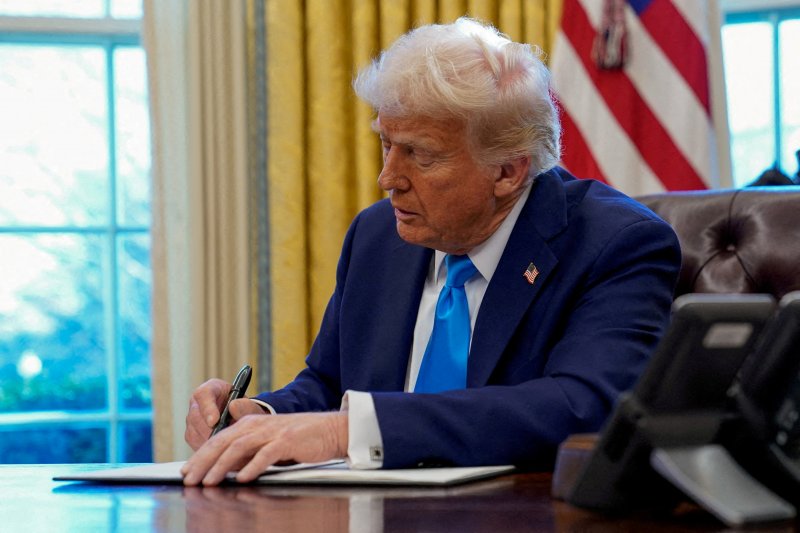U.S. Extends Section 907 Suspension to Strengthen Strategic Partnership with Azerbaijan

U.S. Administration Extends Suspension of Section 907, Bolstering Strategic Partnership with Azerbaijan
A key decision recently announced by the U.S. administration has reignited focus on evolving diplomatic and security ties in the Caucasus region. The executive memorandum reveals the continuation of a specific legal suspension affecting aid restrictions originally imposed in the early 1990s. This move reflects a strategic recalibration by Washington aimed at supporting broader security objectives while maintaining equilibrium in a complex geopolitical landscape.
The rationale behind this policy shift is multifaceted. Primarily, it advances efforts to counter global terrorism by ensuring that both American and allied coalition forces remain fully prepared for ongoing counter-terrorism operations. Enhancing military readiness in this context is vital not only for direct combat capabilities but also for fostering international cooperation with partners directly impacted by regional volatility.
Moreover, this decision underscores the importance of reinforcing border security in a geopolitically sensitive area. The cooperation facilitated by such measures seeks to stabilize border regions and prevent potential spillovers of conflict or illicit activities, thereby contributing to broader regional stability.
Upholding Peace and Strategic Cooperation
Critically, the memorandum explicitly states that this policy adjustment will not obstruct the delicate peace processes underway between conflicting parties in the region. It affirms that the change is designed to be neutral with respect to ongoing negotiations, ensuring that it neither provides leverage for offensive operations nor diminishes trust between involved states. This careful balancing act signals a commitment to support both security and diplomacy simultaneously.
Such a stance is significant given the intricate historical and political context surrounding these peace talks. The acknowledgment that expanded cooperation should not influence territorial disputes or sovereignty concerns conveys a clear respect for diplomatic procedures presently in motion.
Extending this waiver is also a reflection of the continued strategic partnership the United States seeks to maintain with the government directly affected by these provisions. By preserving this channel, the administration reaffirms its intent to engage actively with regional actors, aiming to enhance collaborative efforts in security, economic development, and political dialogue.
Context and Implications of the Waiver Extension
The original legislative restriction was enacted decades ago and aimed at limiting assistance as a form of diplomatic pressure. Over time, shifting regional dynamics and international security considerations led to periodic waivers of this restriction. This latest extension marks a reaffirmation of prior decisions that recognized the growing importance of partnership in combatting transnational threats and promoting stability.
This ongoing adaptation spotlights the complex interplay between longstanding legal frameworks and contemporary geopolitical realities. By continuing to waive these specific restrictions, U.S. policymakers signal flexibility and responsiveness to evolving conditions while retaining the ability to support partners with whom they share security interests.
Furthermore, the memorandum's publication enhances transparency by clarifying the administration’s intentions and the reasoning behind the continuation of this policy. Such openness is critical for public understanding and for the international community’s perception of U.S. foreign policy consistency and strategic priorities.
Conclusion: Strategic Balance in a Complex Region
In sum, this memorandum serves as a crucial instrument in advancing U.S. strategic interests by facilitating robust cooperation in counter-terrorism and border security without compromising ongoing peace efforts. Its implementation acknowledges the necessity of balancing military preparedness with diplomatic sensitivities in a region marked by historical tensions.
The deliberate phrasing within the text underscores a nuanced approach, emphasizing support for both regional partner security and broader international stability. It ensures that enhanced cooperation does not alter the status quo regarding contentious territorial negotiations, thus supporting a framework in which peace dialogues can continue unimpeded.
As this policy moves forward, it will be important to monitor its effects on regional relations and security dynamics. However, the current document stands as a testament to the continuing evolution of international partnerships shaped by emerging challenges and shared goals in the fight against terrorism and the pursuit of geopolitical stability.
